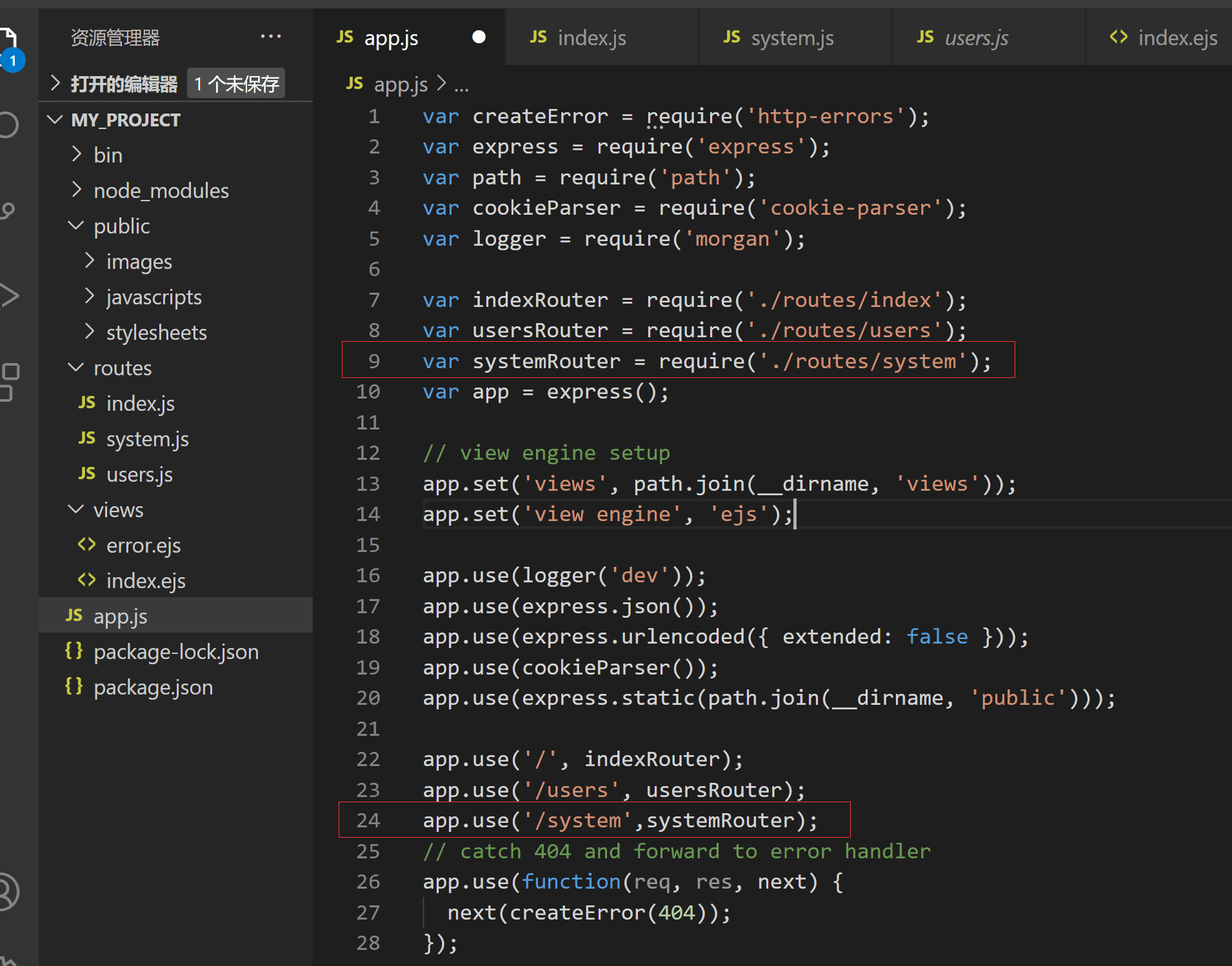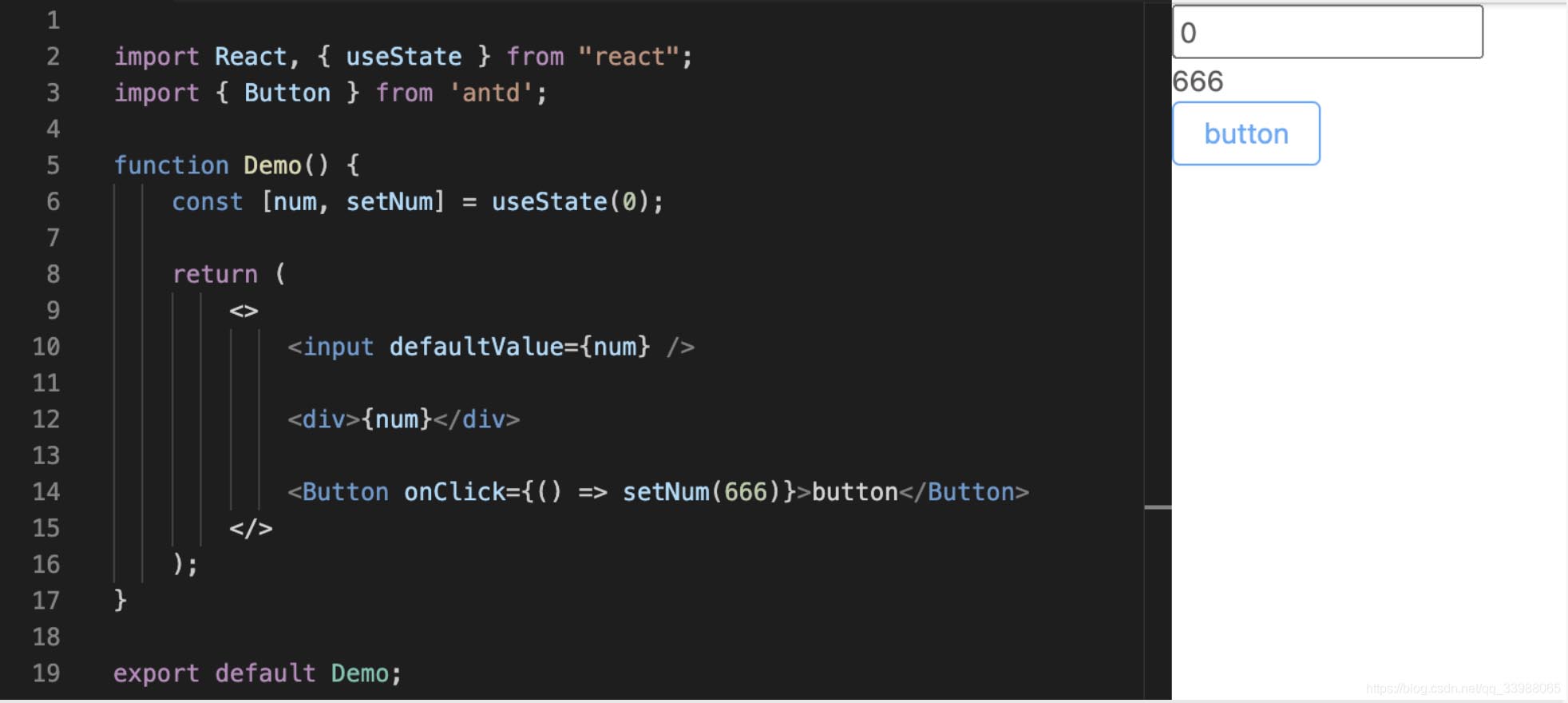React路由跳转的几种方式
注意: 这里使用的react-router-dom是版本5以上,路由形式是history模式
react-router-dom文档,其中依赖包history的github地址
1. params形式
路由跳转后,参数会显示在地址栏

跳转的方法是使用
history.push({pathname: '/personal', search: 'test=22222'})其中search键对应的值就是拼接在地址栏的数据
import React from 'react'
import { useHistory } from 'react-router-dom'
export default ()=> {
const history = useHistory()
// 页面跳转方法
history.push({pathname: '/personal', search: 'test=22222'})
return 123
}接收的方法。数据都是存储在useLocation中的search获取
import React from 'react'
import { useLocation } from 'react-router-dom'
export default ()=> {
const location = useLocation()
// 页面跳转方法
console.log(location, 'props')
return 123
}
2. 使用state的形式
页面刷新不会丢失数据,并且地址栏也看不到数据 跳转的方法是使用
history.push({pathname: '/personal', state: {test: 'dashboard'}})其中search键对应的值就是拼接在地址栏的数据
import React from 'react'
import { useHistory } from 'react-router-dom'
export default ()=> {
const history = useHistory()
// 页面跳转方法
history.push({pathname: '/personal', state: { test: 'dashboard' }})
return 123
}接收的方法。数据都是存储在useLocation中的search获取
import React from 'react'
import { useLocation } from 'react-router-dom'
export default ()=> {
const location = useLocation()
// 页面跳转方法
console.log(location, 'props')
return 123
}
React路由跳转传参问题
使用Link传参
1.引入Link
import { Link } from “react-router-dom”2.Llink上携带传递的参数,携带的参数以对象形式
<Link to={
{ pathname: "/XXX", //xxx为跳转到的路径
state: { title: this.state.exam.title, actionCode: this.state.exam.actionCode }
}
} >切换考试科目 <i className="iconfont icon-jiantou"></i></Link>2.1 接收参数(类组件)
componentDidMount() {
console.log(this.props.location.state.XXX); //xxx指state对象中的键名
}2.2接收参数(函数式组件)
function Fast(props) {
...
useEffect(() => {
console.log(props.location.state.XXX);//xxx指state对象中的键名
})
}url传参
1.url带参传参
<button onClick={()=>{this.props.history.push('/detail/88')}}>跳往详情页</button>`2.接收参数
// react-router-dom是通过“/:”去匹配url传递的参数 ,即id获取到上面的url传过来的88
<Route exact path="/detail/:id" component={Detail}></Route>
//页面接收参数
componentDidMount(){
console.log(this.props.match.params);
}隐式传参
3.1 state方法
页面传参
state方法传参:参数地址栏不显示,刷新地址栏,参数不丢失
<button onClick={()=>{this.props.history.push({
pathname: '/detail', //要跳转到的路径
state: { //参数地址栏不显示,刷新地址栏,参数不丢失
id: 456
}
})}}>去详情页</button>接收参数
<Route exact path="/detail" component={Detail}></Route>
//页面接收参数
componentDidMount(){
console.log(this.props.history.location.state);
}3.2 query方法
页面传参
query方法传参:参数地址栏不显示,刷新地址栏,参数丢失
<button onClick={()=>{this.props.history.push({
pathname: '/detail', //要跳转到的路径
query: {
id: 456
}
})}}>去详情页</button>接收参数
<Route exact path="/detail" component={Detail}></Route>
//页面接收参数
componentDidMount(){
console.log(this.props.history.location.query);
}以上为个人经验,希望能给大家一个参考,也希望大家多多支持阿兔在线工具。



